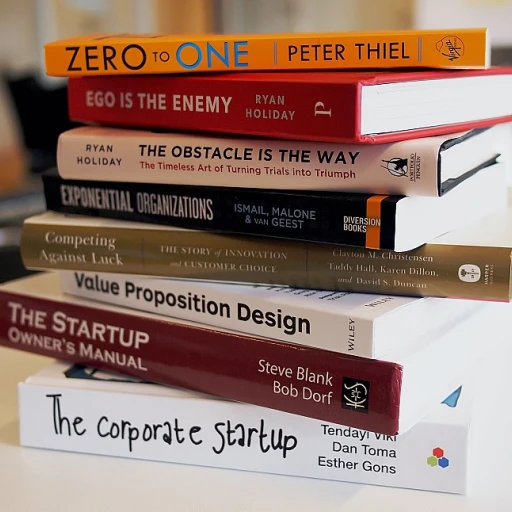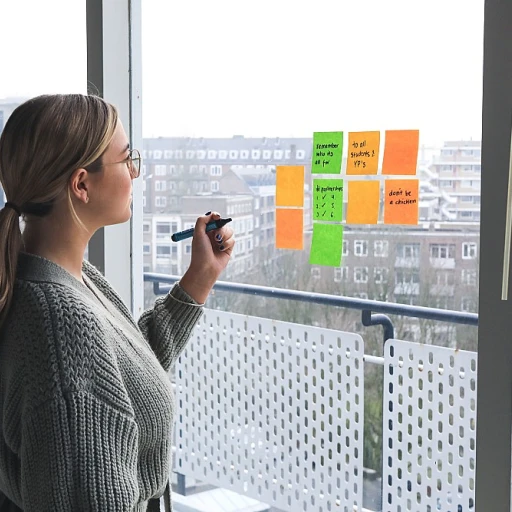Understanding the Role
Grasping the Coaching Landscape
In the realm of college athletics, the role of a basketball coach, particularly in women's programs, is multifaceted and demanding. Understanding the intricacies of this position is crucial for anyone exploring career opportunities in this field. A head coach in women's basketball is not just responsible for the on-court performance but also plays a pivotal role in shaping the student athletes' overall experience.
The responsibilities extend beyond coaching during games and practices. A head coach must also manage the program's operations, including recruiting talented athletes, coordinating with assistant coaches, and ensuring compliance with university and athletic regulations. This requires a deep understanding of the sport, as well as strong leadership and organizational skills.
Moreover, the role often involves collaboration with other departments, such as the athletics director and the athletic trainer, to ensure the well-being and development of student athletes. This collaborative aspect is essential in creating a supportive environment that fosters both athletic and academic success.
For those interested in pursuing a career in this field, it's important to recognize the diverse skill set required. From strategic planning to interpersonal communication, the role of a basketball coach is as challenging as it is rewarding. Exploring career opportunities in this dynamic environment can lead to a fulfilling career path, whether as a head coach, assistant coach, or in other related positions.
For more insights into career opportunities in similar fields, you might find this exploration of career opportunities helpful.
The Application Process
Submitting the Application
The application process for coaching positions in college athletics, including women's basketball, involves several steps tailored to assess a candidate's fit and potential to contribute to the program. It's more than just expressing an interest; it's about demonstrating expertise and passion for the sport. Prospective coaches might start by researching opportunities at a particular university, such as Augsburg, known for its dynamic athletic programs spanning across basketball, lacrosse, track and field, and even softball.
Preparing Your Documents
When applying, candidates typically need to prepare a comprehensive application package. This usually includes a detailed resume highlighting past experiences as an assistant coach or head coach and any relevant experiences in other sports, like lacrosse or women’s field hockey. Strong applications will detail roles with specific responsibilities, such as managing student athletes, coordinating athletic operations, or contributing to recruiting efforts.
Highlighting Your Experience
Sharing anecdotes from past experiences, whether as a volleyball coach or basketball coach, can paint a vivid picture of a candidate’s leadership skills and successes. Additionally, highlighting involvement in athlete development and any roles as a director or operations supervisor can set a candidate apart, showcasing their ability to manage a successful athletic program.
Crafting a Compelling Cover Letter
A well-crafted cover letter can also add significant value to an application. It should concisely articulate why the candidate is interested in the specific role, how their coaching philosophy aligns with the university’s values, and their vision for expanding the college’s women basketball program. Candidates should not only focus on their specific sport but may also draw parallels from experiences with coaching track and field, softball, or as an athletic trainer.
Submitting Your Application Online
Finally, many institutions, including this university, utilize online platforms for managing applications. Ensuring all fields are accurately completed and materials are submitted before deadlines is critical. For more insights about leveraging career fairs and exploring job applications, consider exploring
navigating career opportunities effectively.
Interview Insights
Insights into the Interview Process
Aspiring coaches in college athletics, particularly those vying for positions such as assistant coach or head coach, need to navigate the interview process adeptly. Whether you're applying for roles in men's basketball, women basketball, lacrosse, or even as a volleyball coach, understanding what to expect can significantly enhance your candidacy.
During the interview phase, candidates should be ready to discuss their experiences and philosophies across various sports, be it track field, softball, or field hockey. It's vital to communicate your ability to cater to a university's needs, elaborate on how you intend to develop student athletes and integrate with existing athletics programs. Interviewers seek those who demonstrate a knack for adapting strategies when coaching both men's and women's teams, such as head men or head women basketball.
Applicants must emphasize their strategic thinking and operations expertise, highlighting instances where you enhanced program efficiency or successfully led a team to victory. For an athletic trainer or assistant coach, articulating collaboration with the head coach and director of athletics showcasing teamwork and leadership skills can be vital.
Preparation is key. Familiarize yourself with the specific details of the job you applied for, whether it's as a women lacrosse coach or a full-time graduate assistant. Tailor your anecdotes to the program's unique ethos, like emphasizing skills gained from cross country coaching during a basketball interview.
For deeper insights into enhancing candidate engagement, refer to the
Bullhorn Strategies for Success which provides valuable tips on aligning your aspirations with institutional goals without compromising your unique coaching voice.
Evaluating Candidate Experience
Assessing the Candidate Journey
Evaluating the candidate experience in Augsburg Women's Basketball Coaching is crucial for attracting and retaining qualified candidates, whether for head coach or assistant roles. An insightful understanding of each step in the candidate's journey can help refine the selection process, ensuring it aligns with the university's standards and athletic goals.
The candidate experience extends beyond the initial application, involving several touchpoints that shape their impression of the college. These touchpoints include communication with the hiring team, interaction with the university's athletic director, or discussions with existing coaching staff from both the women's and men's basketball programs. The way candidates are treated throughout this process significantly affects their perception and willingness to join the program.
Transparent and Engaging Communication
Communication is key. From the initial job posting for positions such as an assistant coach or a head coach, to the final offer, each interaction needs to be clear, timely, and respectful. For instance, timely updates about application status or interview schedules, especially in roles like graduate assistant or athletic trainer, demonstrate a commitment to professional respect and efficiency.
It's also crucial to consider the interdisciplinary dynamic within the athletics department. Interaction between applicants and existing staff, such as the volleyball or lacrosse coach, can provide realistic insights into the program. This exposure helps candidates visualize their potential role and fit within the team, impacting their decision-making process.
Fostering an Inclusive Environment
An inclusive recruiting environment further enhances the candidate experience. Encouraging applications from diverse backgrounds, including those from fields like track field or softball, enriches the coaching team and broadens perspectives. Ensuring that the recruiting process is unbiased and welcoming affects not only women basketball candidates but extends to those applying for positions across different sports, including field hockey and cross country.
Ultimately, assessing the candidate's journey in women's basketball coaching at Augsburg plays a pivotal role in securing a workforce that is both competent and cohesive. By understanding and improving these experiences, the university not only attracts top talent but also builds a culture that champions growth and excellence across its athletics programs.
Challenges in Candidate Experience
Addressing the Hurdles in the Selection Journey
Navigating through the candidate experience in Augsburg women’s basketball coaching can present several challenges. For starters, the expectations associated with the role can vary significantly, from managing the program’s operations to ensuring the development of student-athletes. As candidates transition from different backgrounds, such as from being a lacrosse coach or an assistant at another college, adjusting to these specific demands may require time and adaptation.
Moreover, as the process progresses from application to interviews, candidates might grapple with understanding the intricate details of the program. This includes interactions with university directors, athletic trainers, and understanding the nuances of coaching women’s sports, ranging from basketball to the more niche fields like field hockey or volleyball. Ensuring clarity and support during these stages is crucial.
Additionally, discrepancies in the level of involvement expected in various roles, such as head coach versus an assistant coach, may pose a challenge. Candidates might find it difficult to gauge their fit within the university’s athletic department, comparing opportunities across roles in men's and women's coaching operations, be it track field or softball.
There's also the inherent challenge of conveying one’s expertise during the interview phase. As detailed in the earlier discussion, insights into revealing your nuanced understanding of both head women’s and assistant women’s coaching roles are critical. They demand a structured approach, potentially involving scenarios akin to managing cross country teams or integrating strategies from experiences as a basketball or volleyball coach.
Understanding these obstacles and planning accordingly is key for candidates to thrive in this competitive arena and for the institutions to benefit from a rich pool of coaching talent.
Success Stories and Testimonials
Inspirational Journeys to Success
The world of women's basketball coaching, particularly at institutions like Augsburg, is filled with inspiring stories where candidate experience plays a pivotal role in shaping coaching journeys. These stories highlight the blend of passion, dedication, and strategic decision-making required to succeed.
Consider the journey of a graduate assistant who transitioned into a full-time assistant coach role. Their path was marked by persistent learning and engagement with both the men and women’s athletic programs, including volleyball and lacrosse. They started by volunteering for sidelines work in field hockey and track field events, where they developed a keen sense of operations and athlete management.
Another compelling narrative comes from a basketball coach who initially joined as a head coach for a smaller college. Their exposure to various sports, like cross country and softball, strengthened their understanding of diverse athletics programs. This broad experience is invaluable, offering insights into the intricacies of coaching women, student athletes, and understanding the systemic operations within a university setting.
Testimonials from athletics directors and student athletes often reflect the transformative impact of well-crafted candidate experiences. A head women's basketball coach once noted the significance of a supportive application process, which was instrumental in their decision to join the program. Similarly, candidates acknowledge the importance of thorough interview processes, which better prepare them for the multifaceted demands of their roles.
In the competitive field of college athletics, these success stories emphasize the importance of evaluating and continuously refining candidate experiences. Ensuring that every step, from application to interview and onboarding, reflects the values and goals of both the candidates and the institution, can indeed pave the way for legendary coaching careers.














